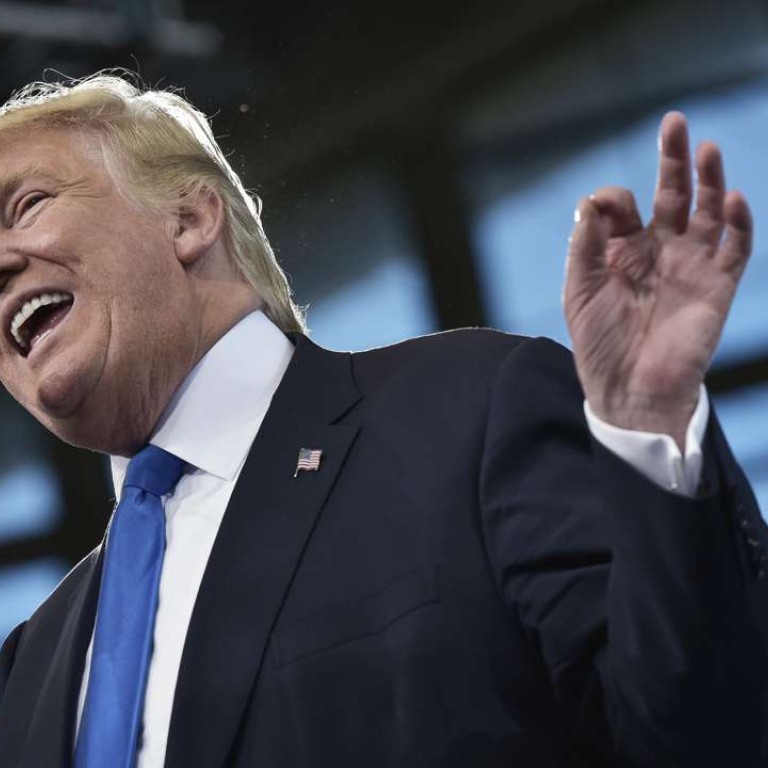
Pacific Rim nations urged to revise TPP without US before Trump cuts trade ties
US president-elect highly likely to ditch Trans-Pacific Partnership and countries should revise and press ahead with deal without the US, says expert on the agreement
Allies of the United States should swiftly press ahead with a revised version of the Trans-Pacific Partnership deal without the US before newly elected president Donald Trump formally tears up the free-trade agreement, said a leading analyst who supports the pact.

The suggestion came amid reports that Trump’s transition team was advising the protectionist minded president-elect to quit the proposed deal within his first 100 days of office in January.
China has been swift to take advantage of the surrounding uncertainty, with officials saying on Thursday they would seek support for a Beijing-led Asia-Pacific free-trade area at a regional summit President Xi Jinping will attend in Peru this month.
The TPP, which was originally set out by the US and 11 Pacific Rim countries, was all but certainly “dead”, with US President Barack Obama no longer considering pursuing it in Congress during the lame-duck session of his administration, according to diplomatic sources and analysts in Washington.
“The TPP is off the US agenda unless congressional Republicans insist that President Trump use his negotiating skills to go back to the other countries and renegotiate,” said Jeffrey Schott, a senior fellow at the Peterson Institute for International Economics in Washington and the author of a book about the Trans-Pacific Partnership.
As the pact was also meant to benefit the domestic economies of the 11 countries outside the US, Schott said they should come up with a “provisional” TPP and exclude America.
A senior US State Department official, who spoke on condition of anonymity, confirmed the trade deal was more or less abandoned. The Obama administration had planned to send it to Congress for approval, anticipating a victory for Hillary Clinton.

Given the US and Japan, the world’s biggest and third-largest economies, account for 60 per cent of the gross domestic product among the 12-strong TPP nations, the economic clout of a revised pact without America would be questionable, according to some analysts.
Asia-Pacific countries hoping the pact would be pushed through were left in shock after Trump’s victory. The ambassadors of Singapore, Japan, Australia and New Zealand in Washington cancelled a planned press conference scheduled on Thursday after Clinton’s defeat.
Vietnam’s Trade Minister Tran Tuan Anh said the country would remain competitive even if the TPP did not go through.
Trump would move quickly to fulfil some of his most controversial campaign promises related to what he derided as “job-killing” trade policies, according to an internal transition team document seen by US-based news outlet Politico.

Within the first 100 days, his administration will drop out of the TPP and in the 100 days after that could withdraw from the North American Free-Trade Agreement between the US, Canada and Mexico, unless certain demands were met, according to the policy road map.
Analysts said Obama framed the TPP, which excluded China, as an effort to write Asia’s trade rules before Beijing could. It would thus establish US economic leadership in the region as part of his “pivot to Asia” policy, they argued.
Vice-Foreign Minister Li Baodong told reporters that Asia needed a free-trade agreement as soon as possible. “China believes we should set a n
ew and very practical working plan, to positively respond to the expectations of industry and sustain momentum and establish a free-trade area in Asia-Pacific at an early date,” he was quoted as saying by Reuters.

